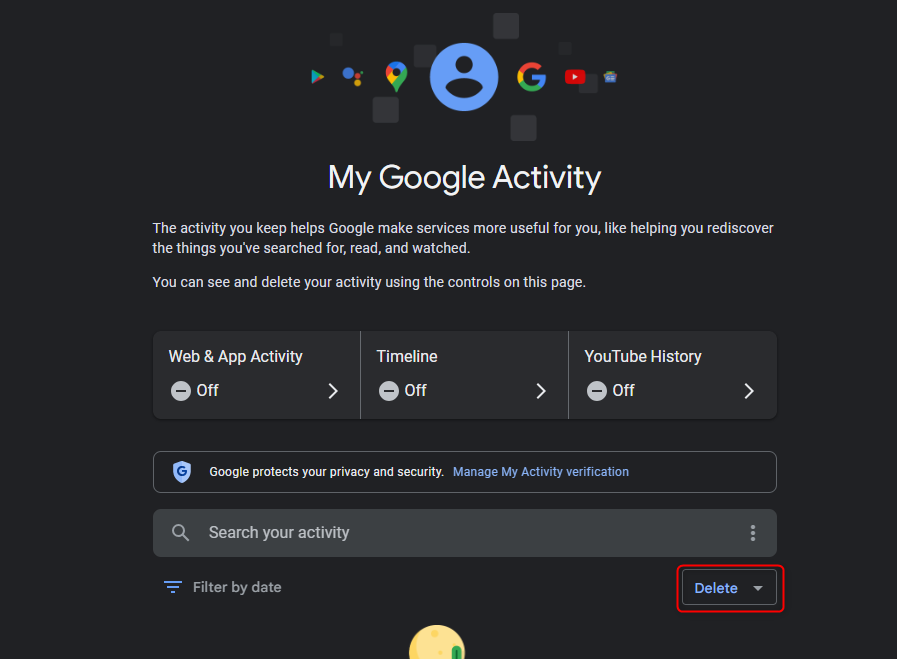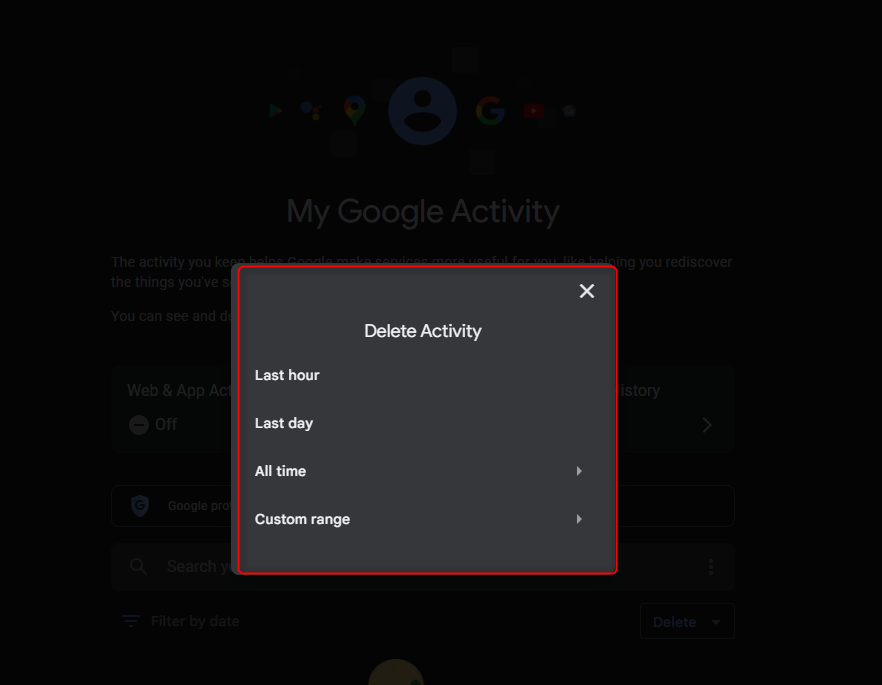Summary
- Deleting your local web history from your browser only deletes it from your view. This data is often saved by third-parties on their servers.
- Google stores information about you to provide you with a better online experience, including the ability to provide personalized recommendations.
- Finding a good balance between how often or how far you should go when trying to protect your online privacy is really up to you.
If you’ve ever wiped your browsing history clean, thinking it was gone for good, think again. Deleting your local history reduces your digital footprint, but doesn’t eliminate it entirely.
Your online actions create a digital trail of breadcrumbs. Some of those breadcrumbs come from conscious interactions such as posting on social media, subscribing to newsletters, or accepting website cookies. Others are created more passively as you browse the web and use apps.
This assortment of data is your digital footprint.
Why Isn’t Clearing Your Browsing History Enough?
Your browser stores website history, cookies, and a number of cache files on your device. Clearing your cache, cookies, and browsing history removes all those files, so anyone using your device can’t see the list. However, companies that provide services on the internet, including companies like Google, maintain a log of user activity. This isn’t your browser’s local history; rather, that information is stored elsewhere, like on Google’s servers.
Google uses this information to improve its services, offer personalized recommendations, and improve the effectiveness of its targeted advertising. A complete history cleanup requires you to erase all information Google maintains in your account settings.
How to Delete Your Data From Your Google Account
To remove your personal data, log in to your Google account and then go to the “My Google Activity” page. All of your recent activity will be shown, chronologically, from newest to oldest. Your searches, website visits, YouTube activity, and your location history, if enabled, will be shown.
The log isn’t just a simple list of your actions; it’s a detailed record with dates, times and device information. Google makes removing things from your activity log easy. To remove an entry, click the three small dots beside it, select “Delete” and confirm deletion.
If you’d like to delete a lot more, Google offers the option to delete activity by date range. Whether you want to remove everything from yesterday or erase your history for the past month, you can set your desired parameters. Just click on the “Delete” option, choose the appropriate date range, and confirm your selection.
Doing this task manually every time isn’t really practical. Fortunately, Google offers automatic deletion, which can greatly help maintain your privacy without too much effort. “My Google Activity” settings let you automatically delete all activity older than 3 months, 18 months, or 36 months.
Select “Web & App Activity,” and scroll down to “Auto Delete.” The default option is that Google deletes all this data every 18 months (for accounts created after June 2020). If you want to change it, you can use the dropdown menu to pick a timeframe and “Confirm,” and Google will handle the rest:
Are There Any Cons to Deleting Your Data?
Deleting this data has some trade-offs. Google offers several personal services. The data you have stored improves your experience for each service owned by Google that is used. It’s considerably smoother and a lot more personal. Google remembers your preferences, and offers highly relevant suggestions and faster searches. All searches, videos, and location check-ins are logged (unless you’ve turned this off).
If you value privacy over personalized convenience, you might decide to minimize the amount of data you let accumulate. The less data you share, the more chance you have at maintaining your privacy. Turning off certain activity tracking features, such as location history or Web & App Activity, can help.
Personally, what strikes a good balance for me in terms of maintaining my online privacy and deleting the data Google collects on me, is deleting my data every 6 weeks. I also never go longer than two weeks without clearing my cookies. I’m pretty privacy conscious, so this is what works well for me.
Review your Google account’s privacy settings periodically, because things can change from time to time.
Other Things You Can Do for Your Online Privacy
Besides managing your Google settings, there are other ways to protect your online data. You can install extensions on your browser that block trackers, which can reduce the amount of data sent to Google and other companies.
A VPN helps with online privacy since it encrypts internet traffic and masks IP addresses, which can limit websites and advertisers from tracking users. The service doesn’t block all tracking methods, but when users combine VPNs with additional safeguards—like blocking trackers, avoiding browser fingerprinting, and staying logged out of Google—it can help you browse more privately.
Software updates are important, so avoid clicking that “remind me later” button every time you get an update. Whether it’s a system, app, or browser update. Important updates include security patches which improve the security of software and these improvements can be large. Ignoring these updates could leave you exposed to vulnerabilities that compromise your security and privacy, regardless of how many times you clear your history.
Take a proactive approach and regularly review the permissions you grant apps and services; consider them carefully. A single app frequently contains a large amount of data, yet may not really need all of it. Check these permissions often and remove access when it is no longer needed; I recommend doing this, especially if you’re using an Android device.
Your digital footprint isn’t something that disappears by simply clicking the “delete” button. It’s a living record, continually updated with every interaction you have online. Taking control of your data means accepting that privacy is an ongoing responsibility. Rather than relying on local history deletion, make managing your “My Google Activity” log a regular habit.
Clearing your browsing history is really only the tip of the iceberg. The real control lies in how you manage all your other online interactions—be mindful of sharing too much private information online.






